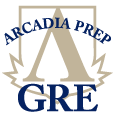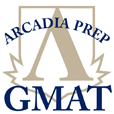If x and y are perfect squares, then which of the following is not necessarily ... ...
If x and y are perfect squares, then which of the following is not necessarily a perfect square?
(A)
x2
(B) ...
(C) ...
(D) ...
(E) ...
*This question is included in
Nova Math - Problem Set A: Substitution
Replies to This Thread: 0
|
----
Posted: 09/02/2012 10:19
How do u do this question?
Replies to This Thread: 0
|
----
Posted: 11/06/2012 12:48
Would you eliminate A and C because they don't contain "y" in them?

Admin
Replies to This Thread: 0
|
----
Posted: 11/06/2012 13:59
Jagathi, please see the explanation which is accessible by tapping on the Show Correct Answers button in the app:
Choose x = 4 and y = 9. Then x^2 = 4^2 = 16, which is a perfect square. (Note, we cannot eliminate x^2 because it may not be a perfect square for another choice of x.) Next, xy = 4·9 = 36, which is a perfect square. Next, 4x = 4·4 = 16, which is a perfect square. Next, x + y = 4 + 9 = 13, which is not a perfect square. Hence, the answer is (D).
Replies to This Thread: 0
|
----
If x and y are perfect squares, then which of the following is not necessarily ... ...
Posted: 01/26/2014 09:35
I don't understand










